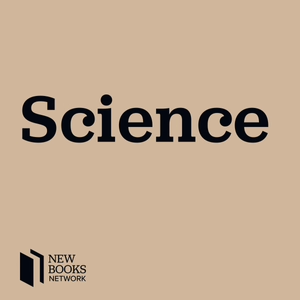
Plant Breeding Just Might Save the World
03/05/24 • 35 min
The world's population has quadrupled in the last century and is expected to surpass 8 billion by 2050. This means that in the next 25 years or so, the world will need to produce about 60% more food to feed its estimated population.
Furthermore, we’ll need to produce that food sustainably in unseasonable temperatures, drought and flood conditions, all while fighting disease and pests, and on less land.
Jonathan talks to Clemson plant geneticist Rick Boyles on this episode of Earthly.
Boyles is one of many researchers worldwide tackling the challenge of feeding a growing global population through plant breeding.
Boyles is going to give some background in plant breeding, talk about advances modern technology have brought to the plant breeding process, and hopefully leave us with room for optimism.
Show Notes
Clemson receives FFAR grant to promote sorghum health benefits
Clemson reseacher developing new line of wheat to withstand Southeast growing conditions
Clemson rejoins forces with collaborative group to kick-start small grains program
Clemson researcher studying sorghum's resistance to fall armyworm
For show notes and additonal resources, visit https://blogs.clemson.edu/earthly/.
Earthly is hosted and produced by Clemson University.
The world's population has quadrupled in the last century and is expected to surpass 8 billion by 2050. This means that in the next 25 years or so, the world will need to produce about 60% more food to feed its estimated population.
Furthermore, we’ll need to produce that food sustainably in unseasonable temperatures, drought and flood conditions, all while fighting disease and pests, and on less land.
Jonathan talks to Clemson plant geneticist Rick Boyles on this episode of Earthly.
Boyles is one of many researchers worldwide tackling the challenge of feeding a growing global population through plant breeding.
Boyles is going to give some background in plant breeding, talk about advances modern technology have brought to the plant breeding process, and hopefully leave us with room for optimism.
Show Notes
Clemson receives FFAR grant to promote sorghum health benefits
Clemson reseacher developing new line of wheat to withstand Southeast growing conditions
Clemson rejoins forces with collaborative group to kick-start small grains program
Clemson researcher studying sorghum's resistance to fall armyworm
For show notes and additonal resources, visit https://blogs.clemson.edu/earthly/.
Earthly is hosted and produced by Clemson University.
Previous Episode

Capturing climate change through art
Humans have forever turned to nature for artistic inspiration. The earliest cave paintings are at least 64,000 years old and depict images of wild animals, landscapes, and even the heavens. More recently, photographer Ansel Adams, poet Wendell Berry, sculptor Andy Goldsworthy, and movie director Werner Herzog have all produced great art by musing on the material world.
Jonathan's guest on Earthly, continues in that tradition. Todd Anderson collaborates with scientists and travels to some of the world’s most remote environments to see what they see only with the eye of an artist. Then Anderson creates prints using woodcuts to capture moments in time as landscapes are altered by rising temperatures.
Anderson is going to tell us about his process, inspiration, and what he hopes his art says about the natural world.
SHOW NOTES
Journey to the Ice
Thin Ice
Todd Anderson's Work
For show notes and additonal resources, visit https://blogs.clemson.edu/earthly/.
Earthly is hosted and produced by Clemson University.
Next Episode

Highlights and lowlights from latest U.S. Census of Agriculture
Since the days of George Washington, the United States has been surveying farmers about their farm operations to monitor the health of the nation’s agricultural industry and the security of the food supply.
The effort started in 1791, when Washington wrote to farmers requesting information on land values, crop acreages, crop yields, livestock values and taxes. Washington’s survey extended 250 miles north and south, and 100 miles east and west of his home in Mount Vernon, which today would encompass Maryland, Pennsylvania, Virginia, West Virginia, and the District of Columbia.
In 1839, the census became official when congress appropriated $1,000 for, "carrying out agricultural investigations and procuring agricultural statistics."
Now the USDA’s Census of Agriculture spans the entire nation and is released every five years.
Today on Earthly, Jonathan talks to agricultural economist Nathan Smith about the 2022 census, which was released in February.
Smith is going to help us understand what the census says about the health of the nation’s agricultural industry and how South Carolina is faring.
Census of Agriculture
Clemson Extension Agribusiness Team
New and Beginning Farmers Program
For show notes and additonal resources, visit https://blogs.clemson.edu/earthly/.
Earthly is hosted and produced by Clemson University.
Earthly - Plant Breeding Just Might Save the World
Transcript
Intro (00:01):
Welcome to Earthly, a Clemson University podcast discussing issues of agriculture, horticulture, nature, and design impacting the world nation, state of South Carolina and even your home. Here's your host, Jonathan Vet.
Jonathan Veit (
If you like this episode you’ll love
Episode Comments
Generate a badge
Get a badge for your website that links back to this episode
<a href="https://goodpods.com/podcasts/earthly-389820/plant-breeding-just-might-save-the-world-55254591"> <img src="https://storage.googleapis.com/goodpods-images-bucket/badges/generic-badge-1.svg" alt="listen to plant breeding just might save the world on goodpods" style="width: 225px" /> </a>
Copy




